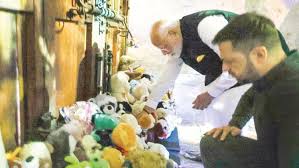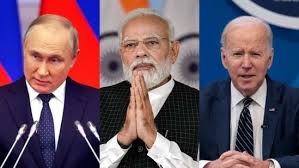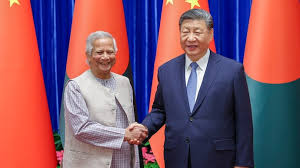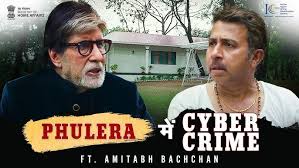Being a major power, it behoves India to talk to all sides of the disputes and understand their points of view. It is also critical for India to explain them its position on the issues and offer any help that is feasible
By Prasad Nallapati*
“We’re not Neutral, but on the side of Peace.”
Said Prime Minister Modi while presenting India’s position on Ukraine-Russia war at his talks with President Zelensky in Kiev on Friday. He further invoked the `message of peace’ of Buddha and Gandhi stressing their timeless relevance in finding solutions to even present-day global challenges.
Neither Ukraine nor the US is amused, though.
Unending Wars in Europe and West Asia
The ongoing wars in Europe and West Asia are not limited or recently erupted ones. They are in fact `unfinished’ business of past conflicts and hence the end point is not on the horizon.
The Ukraine issue is a relic of the `cold war’ era which may seemed to have ended with the dismemberment of the Soviet Union, but the successor state of Russia is considered by the West no less lethal and to be disarmed.
President Putin’s emergence on the scene has put a halt to western control over Russian institutions and thus forcing them to plan alternate strategies like `colour revolutions’ in former Soviet republics to turn them against Moscow.
The NATO encroachments into Ukraine, a former Soviet republic and a lifeline for Russian energy supplies to Europe, was the last straw that provoked Putin to fight it out. He, however, walked into a trap underestimating Zelensky’s resolve and the western resoluteness to back him.
With opposing alliances now firmly in position to take as long as it takes to tire the other side out, it is difficult to predict who would blink first. The slaughter of innocent people would go on in the meantime.
The Palestinian issue is similarly a remnant of the World War II bounty sharing among victorious powers and consequent redrawing of national boundaries.
While the Jewish genocide and creation of a homeland for them in their ancient land have global empathy, their suppression of local Palestinian dreams, such as denial of statehood and encroachments of their lands in the name of Israeli security, are undefendable.
Hardliners, in control on both sides, are unwilling to settle for anything less than decimating each other. The powers that are backing the two sides are only adding fuel to the fire.
There are hence no takers for `reasoning’ or `peace’, with saner voices throttled.
What Are The Stakes For India?
India is walking the razor’s edge as a tilt to either side would be disastrous for its growth story. Modi’s visit to Kiev is part of that balancing act, `strategic autonomy’. He met President Putin in Moscow last month.
The much talked about theme of India playing the role of mediator has no basis in either of the contexts.
Being a major power, it behoves India to talk to all sides of the disputes and understand their points of view. It is also critical for India to explain them its position on the issues and offer any help that is feasible.
Modi’s message of `peace’ is to be seen in this context. It is a different matter that it has no resonance anywhere.
Zelensky in fact spoke sharply, at a press meet after meeting with Modi, of India’s continued imports of Russian crude oil. “Putin and his society will feel the pain of war if India stops importing Russian oil.” He further added, “If we will change the Indian attitude to this war and to Russia, we will stop the war because Putin will want to stop it.”
That is not really a fair assessment. China and other countries, including some in Europe, continue to buy much larger quantities of crude oil from Russia. For India, cheaper Russian oil is helping to fuel its continuous growth which otherwise would have been under severe stress.
Besides Russia, Ukraine is also highly critical for India’s development and military preparedness.
It’s warships are powered by Ukrainian turbine engines, and it’s fleet of AN-32 transport aircraft are being upgraded at their factories, which are now put out of service by Russian bombing. Ukraine and India are exploring joint ventures for military production. Bharat Forge’s recent acquisition of 51 per cent stake in Zorya’s India arm is one such cooperative effort.
Similarly, India has high stakes in West Asia with ambitious regional connectivity projects, besides oil supplies.
The International North-South Transport Corridor (INSTC), a network of ships, rail and road route connecting India, Afghanistan, Central Asia and Russia through Iran, is a game changer for New Delhi’s strategic interests.
The India-Middle East-Europe Economic Corridor (IMEC), an ambitious project announced at the G20 summit in New Delhi last year, aims at fostering connectivity and economic integration between Asia, the Persian Gulf and Europe.
India is handling the pivotal port operations for these two crucial connectivity projects at Chabahar in Iran and Haifa in Israel respectively.
India, therefore, has a genuine interest in advocating peace in both the regions, but the `big power’ rivalries are a major stumbling block. Mobilizing the `Global South’ may help in the long run in building pressure on these powers.
(*Prasad Nallapati is President of the Hyderabad-based think-tank, Deccan Council for Strategic Studies, and former Additional Secretary to the Govt of India)




